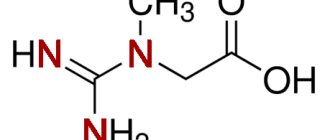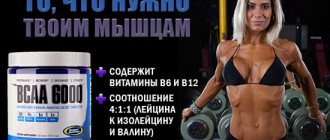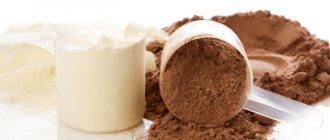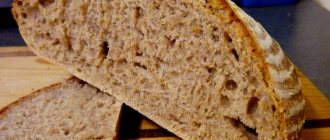A distinctive feature of vegetarianism is the complete rejection of animal products - meat. However, dairy products are allowed to be consumed. Veganism is the exclusion from the diet of not only meat, but also all dairy products. That is why protein nutrition for each of these categories is different.
This article discusses vegan protein, its advantages and disadvantages, types for each category described above, how to choose the right product and how to take it.
Pea protein
Pea protein powder is not made from sweet green peas, but from their higher protein cousin, yellow split peas.
A 28-gram serving of pea protein contains about 21 grams of protein and 100 calories, depending on the brand. Like other legumes, it contains small amounts of the amino acid methionine (,).
However, pea protein is especially rich in the essential branched chain amino acids (BCAAs), leucine, isoleucine, and valine, which help muscle function and stimulate your body to produce muscle protein ().
In one 12-week study, 161 young adults took 25 grams of pea protein twice a day, including immediately after exercise. The weakest participants had a 20% increase in biceps muscle mass compared to 8% in the placebo group.
Moreover, the muscle gains associated with pea protein were similar to the muscle gains seen in people consuming whey (milk) protein ().
Animal and human studies also show that pea protein may promote a feeling of fullness in the stomach and lower blood pressure (, , ).
Summary:
Pea protein is rich in branched chain amino acids, which help in building muscle mass. Preliminary research suggests that it is as effective as whey protein in increasing muscle mass. It may also help you feel full and lower your blood pressure.
What is the best protein for vegetarians?
Athletes need to consume enough protein, because this substance is the main building material for muscles.
Sports nutritionists have not come to a consensus regarding the daily intake rate, so per day, depending on the intensity of training, it is recommended from 1 to 2 g of protein per 1 kg of weight, and in the case of vegetarianism, the intake rate increases by 10%. With the help of diet alone, it is problematic to choose the right diet that would provide the required amount of protein amino acids at the right time, so the main sports nutrition for vegetarians is high-protein mixtures (proteins), which can be made from different sources:
Whey Protein and Casein
Whey protein is made from whey and has the fastest absorption rate. That is why it is taken immediately after training, in order to provide the muscles with essential amino acids.
Casein is obtained by enzymatic curdling of milk and, unlike all other types of protein in this article, has the slowest amino acid release rate (about 6 hours), so it is best suited for feeding muscle tissue over long periods of time - at night or between main meals food.
Egg protein
Egg protein (egg albumin) contains all the necessary amino acids and is quickly absorbed in the digestive tract, so it can be used as a replacement for whey protein. The only disadvantage of this protein is the higher price and small selection of products, because not all sports nutrition brands produce egg protein.
Eggs are one of the main products in bodybuilding - they are useful for absolutely everyone who needs high-quality protein, including for muscle gain, but not only. Egg protein is indicated for people intolerant to soy and dairy products.
Soy and other plant proteins
Soy protein has a complete amino acid profile compared to other plant proteins. The myth that phytoestrogens in soy can reduce testosterone secretion has long been refuted by many scientific studies, so soy protein is suitable for both women and men.
Soy protein contains a large amount of vitamins and microelements, so it can serve as a worthy alternative to whey or egg protein.
Features of protein intake for vegetarians
- The most optimal frequency of intake is 1-2 servings per day: 1 serving of whey/egg/soy protein immediately after training + 1 serving of casein before bed. If you do not consume dairy products, then take 1 serving of another protein in the middle of the day instead of casein;
- whey, egg, soy proteins and casein, with their high protein content, have low calorie content, so they can be used not only during weight gain, but also for weight loss;
- with a vegetarian diet, it is preferable to mix a serving of protein with low-fat milk, but you can also mix it with soy, almond milk or water;
- Whey protein is rich in the essential amino acids BCAA (leucine, isoleucine and valine, which make up about a third of all muscle protein), so if you completely abandon animal products and choose plant protein, an additional intake of BCAA (5 grams per day) is recommended;
- In order to provide a high-protein diet, those who love sweets can add protein when preparing various desserts and use ready-made protein mixtures for baking. But ready-made formulas most often use milk protein, which is not suitable for all vegetarians.
Hemp protein
Hemp proteins come from the seeds of the hemp plant, which contain only trace amounts of a euphoric compound called tetrahydrocannabinol (THC). This means that hemp protein cannot cause a high like marijuana ().
A 28-gram serving of hemp protein contains about 12 grams of protein and 108 calories, depending on the brand. Hemp protein is also an excellent source of fiber, iron, zinc, magnesium, and alpha-linolenic acid (ALA), the plant form of omega-3 fats (,).
Because hemp protein contains small amounts of the essential amino acid lysine, it cannot be considered a complete protein. However, if you regularly eat legumes or quinoa, you can compensate for the deficiency of this amino acid (, ,).
Test-tube studies suggest that hemp seed protein may be a valuable source of blood pressure-lowering compounds. However, its effects have not been tested in humans ().
Summary:
Although hemp protein has moderate levels of protein and low levels of the amino acid lysine, it is high in fiber, iron, zinc, magnesium and the omega-3 fatty acid ALA.
What are BCAA amino acids?
Amino acids BCAA (BCAA, from English. B
ranched-
C
hain
A
mino
A
cids) - a complex of three essential amino acids - leucine, isoleucine, valine. BCAA helps restore muscle fiber after damage during training. And also significantly reduces cortisol levels. Moreover, the most important of the three amino acids is leucine, it is necessary for muscle tissue and if it is deficient, it simply does not grow.
BCAA is essential if you are losing weight. When there is a lack of calories (a calorie deficit is required when losing weight), the body is the first to destroy muscles, as the most accessible source of quick energy. The complex will preserve your muscle tissue while eliminating excess fat.
Pumpkin Seed Protein
Pumpkin seeds contain relatively high amounts of protein and healthy fats. During the production of pumpkin seed protein, most of the fat is removed, reducing the number of calories.
A 28-gram serving of pumpkin seed protein powder provides about 103 calories and 18 grams of protein, depending on the brand. Because pumpkin seed protein contains low amounts of the essential amino acids threonine and lysine, it is considered an incomplete protein (,).
However, pumpkin seed protein is very nutritious, providing the body with high amounts of magnesium, zinc, iron and other minerals, as well as beneficial plant compounds ().
There has been little research on the benefits of pumpkin seed proteins, but there is evidence that they may have antioxidant and anti-inflammatory properties (, , ).
When rats with liver disease were given pumpkin seed protein as part of a standard diet, several markers of liver health improved compared to rats given casein (a milk protein).
Moreover, rats fed pumpkin seed protein had a 22% reduction in LDL cholesterol levels and a 48% increase in antioxidant activity in the blood compared to the casein-fed group.
Summary:
Although low in the essential amino acids threonine and lysine, pumpkin seed protein powder is highly nutritious and provides the body with large amounts of several minerals. Its beneficial plant compounds may have antioxidant and anti-inflammatory properties.
Brown Rice Protein
Brown rice protein powder is easy to find and relatively inexpensive.
A 28-gram serving of brown rice protein powder contains about 107 calories and 22 grams of protein, depending on the brand. It has low levels of the essential amino acid lysine but is a good source of BCAAs, making it a good option for building muscle mass (,).
In fact, preliminary research suggests that brown rice protein may be just as good at supporting muscle growth as whey protein when consumed after resistance training.
In an 8-week study, young men who consumed 48 grams of brown rice protein powder immediately after strength training three days a week had a 12% increase in biceps muscle mass. Men who consumed whey protein in the same way had similar results ().
One of the problems with rice proteins is the possibility of contamination with a heavy metal called arsenic. Choose a rice protein brand that tests the final product for arsenic levels ().
Summary:
Although brown rice protein is not a complete protein, it is rich in BCAA and can be just as effective in building muscle as whey protein. Choose a brand that tests its product for arsenic contamination.
Seitan (wheat gluten)
Protein content: 21 g per 35 g.
Seitan is a food product made from wheat protein (also called gluten or gluten). It is an abbreviation for the Japanese phrase “vegetable protein.” It was first prepared over 1,000 years ago as a meat substitute. It is made by mixing gluten with herbs and spices, then soaking it in water and slowly heating it in soy broth to add the amino acid lysine, which is missing from gluten. The result is a product that resembles meat.
Soy protein
Soy protein powder is a complete protein, which is unusual for a plant protein. It is also rich in BCAA, which makes it excellent in supporting muscle growth and strength ().
A 28-gram serving of soy protein isolate contains about 95 calories and 22 grams of protein, depending on the brand. In addition, it contains beneficial plant compounds, including those that may lower cholesterol (,).
Soy protein has not been very popular in recent years, in part because most U.S. producers make it from genetically modified (GM) soybeans. However, there are several brands that make their product from non-GM soy protein ().
Other reasons why soy protein is not as popular include soy allergies and concerns about potential negative health effects, such as an increased risk of breast cancer.
However, a recent review noted that soy protein isolate contains plant compounds that have antitumor activity, including against breast cancer.
This review also found that some past concerns about the safety of soy were based on results from animal studies that do not necessarily apply to humans ().
However, it is wise to use a variety of plant protein powders rather than relying on just one type.
Summary:
Soy protein is a complete protein source rich in BCAA's for building muscle mass and strength. It may also help lower cholesterol levels. Due to potential safety concerns, you may want to buy non-GM soy protein and not use it every day.
Differences between protein and BCAA: which is better?
Protein is protein, and BCAA is amino acids. However, protein sports supplements already contain BCAA. Moreover, in a higher concentration than regular protein-containing foods. Some don't
Vegan sources do not take into account the existence of plant protein (including plant protein isolate); there is an opinion that only BCAA are available to vegans. Now you know that's not true. But which is better - protein or BCAA?
Amino acids (specifically BCAA) are used to reduce damage to muscle tissue during exercise
, providing the body with an additional source of energy.
The body's absorption of protein requires some time
for the breakdown of proteins into amino acids and their subsequent absorption. Unlike protein, BCAA are already a broken down form of protein and are absorbed much faster. Take these supplements differently.
Sunflower seed protein
Protein isolated from sunflower seeds is a relatively new protein option for vegans.
A 28-gram serving of sunflower protein contains about 91 calories and 13 grams of protein, depending on the brand, and provides the body with muscle-building BCAAs ().
Like other seeds, sunflower seeds have low levels of the amino acid lysine. However, they are a good source of all other essential amino acids. To improve lysine levels, vegan sunflower protein is sometimes combined with quinoa protein, which is a complete protein (,).
There are still no animal or human studies that compare the health effects of consuming sunflower seed protein with other isolated plant protein sources.
Summary:
Sunflower protein contains BCAA, which helps build muscle mass and repair muscles. It is low in the essential amino acid lysine and is therefore sometimes combined with quinoa in protein powder supplements.
Gain muscle mass without meat
The main building component of muscle tissue is protein, or protein. People who eat meat get it from these products. Vegetarians do not eat meat, getting animal protein from milk derivatives and chicken eggs. Vegans consume neither one nor the other at all.
The plant foods that adherents of this diet eat are rich in plant protein. But its value is too low; the molecules of such proteins do not include some amino acids. In addition, vegetarians do not receive enough creatine, an important participant in muscle development.
Based on this, gaining muscle mass with such a diet is very difficult. After all, for muscle growth, the number of calories consumed must exceed those spent on activity, and it is difficult to do this by eating only plant foods.
- We recommend reading: how a raw food diet differs from vegetarianism
Protein Inka Inchi
This protein is made from the star-shaped Inca Inchi seed (sometimes called the nut), which is grown in Peru. Due to its relatively limited supply, it costs more than regular protein powders ().
A 28-gram serving of Inca Inchi Protein contains about 120 calories and 17 grams of protein, depending on the brand. It is a good source of all essential amino acids except lysine (,).
Despite this limitation, when a small group of people were given 30 grams of Inca Inchi protein, it had as good an effect in supporting protein synthesis in the body as the same amount of soy protein powder ().
In addition, Inca Inchi protein is a particularly good source of the essential amino acid arginine, which your body uses to produce nitric oxide.
Nitric oxide helps dilate your arteries, improve circulation and lower blood pressure ().
This unique vegan protein also provides the omega-3 fatty acid ALA, which supports heart health (,).
Summary:
Isolated protein from the Peruvian Inca Inchi seed is a good source of all essential amino acids except lysine. It also contains compounds that promote heart health, including arginine and the omega-3 fatty acid ALA.
Spirulina
This is the commercial name for blue-green algae (cyanobacteria) of the genus Arthrospira; only two species are suitable for consumption - Arthrospira platensis and Arthrospira maxima. Uniquely high in protein content - up to 68 g per 100 g of dry weight. Carbohydrates – no more than 17 g, fats – no more than 5 g.
The amino acid profile of spirulina includes a complete list of essential amino acids that the human body cannot synthesize on its own. BCAA accounts for only 9.1 g, but in terms of the volume of cysteine (0.6 g), methionine (3.2 g) and lysine (2.7 g), spirulina exceeds other types of plant proteins.
Spirulina contains the most glutamine – 9.1 g. This amino acid is necessary for the formation of muscle protein, it is involved in the ornithine cycle (ammonia neutralization), suppresses catabolic processes, and is necessary for a number of fundamental metabolic reactions.
Spirulina includes up to 7% lipids, the bulk of this volume being gamma-linolenic acid. It is necessary for the course of regenerative processes in the body, has an anti-inflammatory effect, has a beneficial effect on the functioning of the gastrointestinal tract, stabilizes the functioning of the endocrine system, and acts as an immunomodulator. Also, gamma-linolenic acid reduces the level of low-density lipoproteins (“bad” cholesterol), stabilizes systolic pressure and normalizes blood counts.
Spirulina also contains alpha-linolenic acid, which is involved in lipid metabolism, energy metabolism, and binds free radicals. Lipoic and stearic acids, which are part of spirulina, are classified as polyunsaturated acids of the Omega-3 group. Vitamin profile – C, D, A, E, all B vitamins. Mineral profile – potassium, calcium, magnesium, manganese, iron, chromium, copper, phosphorus, zinc, sodium, selenium.
Benefits of Spirulina:
· high protein content with a complete amino profile;
· high content of cysteine, methionine, lysine;
· high content of essential fatty acids;
· synergistic vitamin and mineral profile.
Research has shown that spirulina is non-toxic and safe for humans11. This is the best option for people who cannot consume animal protein. NASA has recommended spirulina as a staple crop for space travel12.
Chia protein
Chia seeds come from a plant called Chia or Salvia hispanica, which is native to South America. They have become a popular dietary supplement, for example as an addition to smoothies, cereals and baked goods, but can also be made into chia protein powder.
A 28-gram serving of chia protein contains about 50 calories and 10 grams of protein, depending on the brand. As with other seed-derived proteins, chia protein contains small amounts of the amino acid lysine (, , ).
The powdered form of chia may increase its absorption. In a test tube study, raw chia seed protein digestibility was only 29% compared to 80% for chia powder. This means your body can absorb more of its amino acids ().
In addition to protein, chia protein powder contains 8 grams of fiber per serving, as well as high levels of several vitamins and minerals, including biotin and chromium ().
Summary:
Chia protein is nutritious, but not complete, as it contains small amounts of the essential amino acid lysine. While you can consume chia seeds in their pure form, their protein may be better absorbed if it is isolated and taken in protein powder form.
Whole Fuel
Premium quality vegan blend.
Why did we develop Vegan Fuel?
You may often find yourself turning to junk food and snacks for convenience to satisfy your hunger while leading a busy lifestyle. The time required to purchase, plan and prepare healthy and nutritious meals is quite long. There's no need to panic though, Myprotein has raised the bar again with its brand new product - Vegan Fuel Blend. This powder supplement is rich in nutrients and contains proteins, fats, carbohydrates, minerals and vitamins in the ideal proportions that your body needs.
Made from natural ingredients without any animal products, milk, soy, eggs or sugar, our Vegan Fuel blend has outstanding nutritional value. Featuring an impressive ratio of all three macronutrients, each serving contains a carefully selected blend of pea protein isolate, brown rice protein, oat flour and a specially formulated blend of vitamins and minerals
. We have created a line of mouth-watering flavors: Vanilla, Chocolate and Vanilla Raspberry. Without a doubt, every sip of this cocktail will make you feel like it's your cheat day!
What are the key benefits of vegan blend?
A question we often hear as nutritionists is, “How will this product help me?” Let us explain it to you!
- Outstanding macronutrient composition - 29.8 grams of protein per serving will support you on your way to achieving your training goals, helping to grow and maintain muscle mass. Carbohydrates are the main source of energy for our body, so we included them in this product in the amount of 39.2 grams per serving. Moreover, the mixture contains 10.6 grams of dietary fiber, which fits perfectly into the requirements of a healthy, balanced diet. These data are given for raspberry flavor; for chocolate and vanilla flavors, the values may differ by up to 10%.
- Recommended Dosages for Vitamins and Minerals - Each 100g serving provides 20-40% of the Recommended Daily Intake (RI) of a full spectrum of vitamins and minerals.
- Waste-free product - shelf life for a whole year!
- An affordable, convenient and easy-to-prepare product.
- Suitable for vegans and vegetarians.
Plant Protein Blends
Various plant protein powders are sometimes combined and sold as mixtures. They often add flavorings and sweeteners.
One of the benefits of blending plant proteins is that it can provide optimal levels of all essential amino acids in one product.
For example, pea protein protein can be combined with rice protein. Pea protein contains lysine, which rice protein lacks, while rice protein contains methionine, which pea protein lacks.
Quinoa protein is usually used in combination with other plant proteins. This is one of the few complete plant proteins ().
Other trends you may see in plant-based protein blends are the addition of enzymes to help you digest the product, as well as the use of proteins from sprouted seeds or fermented plant proteins.
Sprouting and fermentation can increase the amount of beneficial plant compounds, vitamins and minerals. It may also help break down antinutrients that can interfere with the absorption of amino acids, minerals and other nutrients (, ,).
Summary:
Many vegan proteins contain blends of different plant proteins to ensure your body gets enough of all the essential amino acids. Sprouting or fermentation can also improve nutrient content and absorption.
Plant or animal protein
Animal products such as meat, eggs and milk contain a lot of protein. Proteins are made up of 20 amino acids , 9 of which are essential . This means that the body cannot produce them itself , but obtains them through diet and nutritional supplements. This makes it easier for people who consume animal products to meet their daily protein and essential amino acid requirements . Animal proteins contain all the essential amino acids and are therefore complex proteins. [2] [3]
Some plant foods, such as soybeans and quinoa , are also complex proteins. However, in most cases, plant protein is missing one or more essential amino acids, most commonly methionine, isoleucine and lysine . For this reason, manufacturers blend plant proteins into multi-ingredient products so that vegans can also be provided with all the essential amino acids in one dose. [3] [2] To learn more about the need for EAAs, read our article Essential Amino Acids EAAs and Their Effects, Sources and Dosage.
Summarize
- Vegan proteins can help provide your body with the essential amino acids needed to support your body's protein synthesis, including muscle repair and growth.
- Grains, legumes and seeds are typical sources of plant protein powders, which are made by removing most of the fat and carbohydrates while isolating the protein components.
- Common vegan protein powders include pea, hemp, rice, and soy. Seed protein powders, including pumpkin, sunflower, chia and Inca Inchi seeds, are becoming increasingly available.
- With the exception of soy and quinoa, plant proteins typically contain low amounts of one or more essential amino acids. This isn't a problem if you regularly eat a variety of plant foods or buy a powder that contains a blend of plant proteins.
- Keep in mind that nutritional content varies by brand, so be sure to check the nutritional contents on the package.
Tags: Protein
- Related Posts
- Pea protein: composition, benefits, side effects
- How to get vitamin D: effective ways
- 9 most important eye vitamins for improving vision: list
« Previous entry
Protein in a vegan diet
The main question that opponents of a plant-based diet ask is where to get protein. “Quality protein is only found in meat,” they say. Once (after a message that I don’t eat meat) I even heard this: “You gave up protein, how do you feel now?” In short, in our minds, “protein” is identified with animal food; if you don’t eat animals, you don’t eat protein. This is one of the myths that is firmly entrenched in the minds of most people.
Protein is certainly an important element that plays many key roles in the functioning of our body, but nevertheless, we do not need huge quantities of this substance. Protein should be the source of only one tenth of all calories consumed (World Health Organization recommendation). Vegan athletes, especially in the early stages of training, may need more protein than vegans who train at a moderate pace or are not very active.











